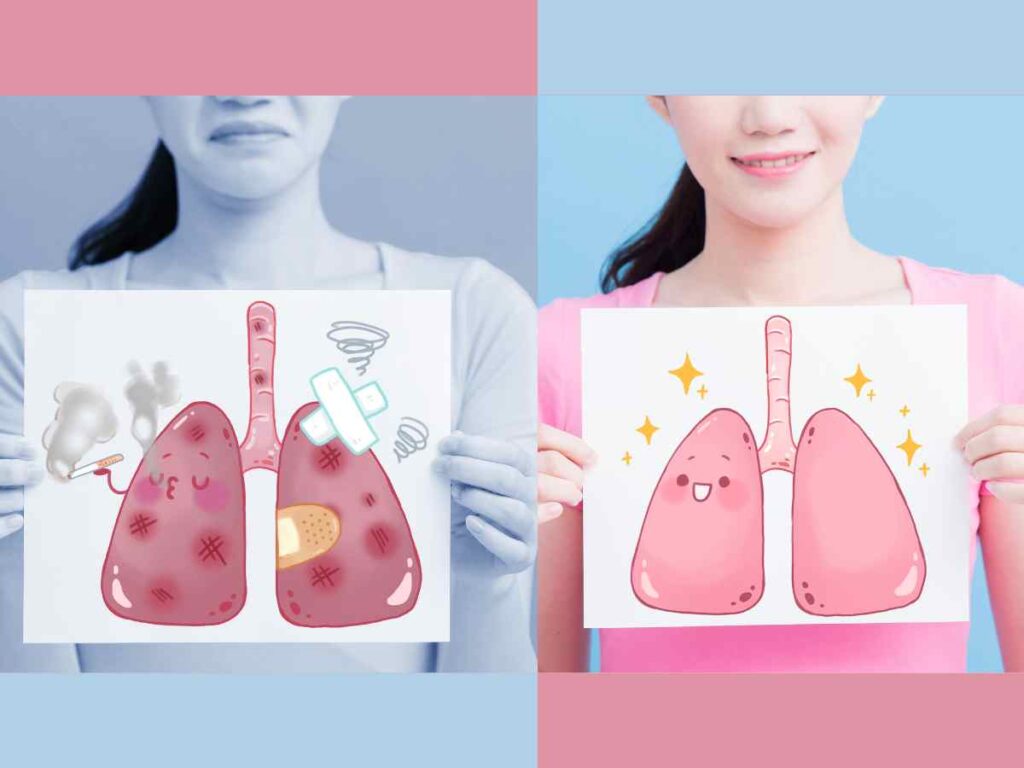This article discusses the top 11 health parameters to live long and prosper and the essential elements supporting optimal health. Many people share the desire to live a long and healthy life. Good health is essential in our pursuit of a meaningful and wealthy life. Focusing on numerous health criteria that indicate general well-being is critical to accomplish this.

1. Body Mass Index
Body Fat Index
Body Fat Index (BFI), also known as Body Fat Percentage, is a measurement that indicates the proportion of body weight contributed by fat tissue in relation to total body weight. It quantifies the percentage of body fat in comparison to lean body mass, which includes muscles, bones, organs, and other non-fat components.

Body Fat Index (BFI), commonly known as Body Fat Percentage, is a measurement that measures the proportion of total body weight provided by fat tissue. It calculates the body fat percentage to lean body mass, including muscles, bones, organs, and other non-fat components.
How is the Body Fat Index calculated?
There are several ways to measure body fat index, each with a different level of accuracy, availability, and cost. Among the most prevalent techniques are:
- Dual-Energy X-ray Absorptiometry (DEXA): The gold standard, DEXA uses low-dose X-rays to give highly accurate body composition analysis.
- Skinfold Calipers: This approach includes measuring skinfold thickness at certain locations on the body and estimating body fat percentage based on those measurements.
- Bioelectrical Impedance Analysis (BIA): BIA measures body fat by passing a low-level electrical current through the body and analyzing the resistance encountered.
- Air Displacement Plethysmography (ADP): ADP calculates body composition by measuring the volume of air displaced inside a sealed chamber.
- Body Fat Scales: These scales use bioelectrical impedance technology to estimate body fat percentage by sending a weak electrical current through the body.
Importance of Body Fat Index:
Body fat index gives a complete picture of body composition than BMI alone. Here are some of the benefits of monitoring body fat index:
- Distinguishing Between Fat and Muscle: BMI is based entirely on weight and height and does not discriminate between fat and muscle mass. On the other hand, BFI distinguishes between fat and muscle, providing a more realistic assessment of an individual’s body composition.

- Implications for Health: Excessive body fat, particularly visceral fat (fat surrounding the organs), has been related to various health problems, including heart disease, diabetes, and certain malignancies. Individuals can examine their risk factors and make informed decisions to improve their health by monitoring their body fat index.
- Fitness Objectives: Body fat index is critical for those with specific fitness objectives. Athletes, bodybuilders, and anyone seeking peak performance frequently focus on lowering body fat while maintaining or growing muscle mass. BFI is a superior indicator for tracking the development and changing training and diet methods as needed.
- Customized Weight Loss Programs: Body fat index evaluation enables individualized weight loss programs. Health professionals can build focused regimens that consider characteristics such as muscle mass, metabolism, and specific fat loss targets by assessing an individual’s body fat percentage.
Body Mass Index
Body Mass Index (BMI) is a measurement that relates body weight to height. It is calculated by dividing an individual’s weight in kilograms by the square of their height in meters. The formula for BMI is as follows:

BMI serves as an approximate indicator of body fat and is commonly used to categorize individuals into different weight status categories: underweight, normal weight, overweight, or obese. Here’s a breakdown of the BMI categories:
- Underweight: BMI below 18.5
- Normal weight: BMI between 18.5 and 24.9
- Overweight: BMI between 25 and 29.9
- Obese: BMI of 30 or higher
BMI is often used as a screening tool to detect potential weight-related health problems. While it does not directly measure body fat percentage, studies have shown that higher BMI readings are often associated with higher body fat content.
Maintaining a healthy BMI is important for a variety of reasons, including:
- Health Risks: Excess weight, particularly body fat, is linked to an increased risk of various health problems, including heart disease, high blood pressure, type 2 diabetes, some malignancies, sleep apnea, and joint problems. Maintaining a healthy BMI can lower your risk of getting these disorders and enhance your overall health.

- Longevity: Studies have shown that those with a normal BMI have a lesser risk of dying prematurely than those who are overweight or obese. Maintaining a healthy weight can extend your life and improve your quality of life.
- Disease Management: For people with chronic illnesses like diabetes or high blood pressure, reaching and maintaining a healthy BMI can assist in improving disease management and prevent further consequences.
It’s crucial to remember that while BMI is a useful screening tool, it has limitations. It does not consider characteristics like muscle mass, bone density, or body fat distribution. Athletes or people with a lot of muscle mass may have a higher BMI, even with a low body fat percentage.
As a result, other examinations, such as waist circumference, body fat percentage, and overall health evaluation, are required to understand one’s health state completely.
It is best to contact healthcare specialists or registered dietitians to determine the most appropriate weight and body composition goals based on individual circumstances and health needs.
Systolic and Diastolic Blood Pressure
Blood pressure is an important measurement that offers important information about cardiovascular health. It is represented by two numbers: systolic pressure multiplied by diastolic pressure. Understanding the meaning and significance of these two metrics is critical for appropriately interpreting blood pressure readings.

Systolic Blood Pressure:
Systolic Blood Pressure: The greater figure in a blood pressure reading is systolic blood pressure. When the heart contracts and pumps blood into circulation, it exerts a force on the artery walls.
The maximal pressure within the arteries during each heartbeat is reflected in the systolic pressure. It is measured in millimeters of mercury (mmHg) and is usually the first number spoken when blood pressure is discussed (for example, 120/80 mmHg).
Diastolic Blood Pressure:
In contrast, diastolic blood pressure is the lowest in a blood pressure reading. It denotes arterial pressure when the heart is at rest between beats or during the relaxation phase of the cardiac cycle.
Diastolic blood pressure is important because it shows the heart’s steady pressure on the artery walls while it is at rest, allowing for optimal blood flow to crucial organs. Diastolic pressure, like systolic pressure, is measured in millimeters of mercury (mmHg) and is given as the second number in a blood pressure reading (e.g., 120/80 mmHg).
Interpretation and Significance:
Adult blood pressure is generally regarded to be approximately 120/80 mmHg. However, it is crucial to remember that optimum blood pressure numbers might vary depending on age, underlying health issues, and individual circumstances.
Hypertension, or persistently high blood pressure, can raise the risk of cardiovascular disorders such as heart attacks, strokes, and renal difficulties. Low blood pressure, or hypotension, can cause dizziness, fainting, and weariness.

Maintaining a normal blood pressure range is critical for general health. Lifestyle variables such as regular physical activity, a balanced diet, weight management, stress reduction, and sodium restriction can all help to maintain ideal blood pressure readings. Medical intervention and control may be required for people who have persistently high or low blood pressure.
2. Behavioral Measures
Behavioral measures are critical in promoting a healthy and long life. Here are some crucial elements, including the significance of associating with positive people and practicing gratitude:
- Hang Out With Positive People: The company you maintain can greatly impact your happiness. Spending time with pleasant and supportive people can significantly impact your mental and emotional condition.
Positive individuals can offer support, motivation, and a sense of belonging, reducing stress, boosting happiness, and creating a positive mindset. - Be Grateful and Practicing Gratitude: consciously acknowledging and appreciating the positive things in your life. It might be as easy as expressing gratitude for what you have or your experiences. According to research, practicing thankfulness regularly can boost well-being, strengthen relationships, reduce stress, and raise overall life satisfaction. Consider keeping a thankfulness diary, sharing your thanks with others, or simply taking a few moments each day to focus on your blessings.

- Positive Self-Talk: Be aware of your inner dialogue and seek to replace negative messages with positive and encouraging thoughts. Positive self-talk can promote self-esteem, reduce stress, and improve mental health. Instead of obsessing on self-doubt or criticism, practice affirmations and focus on your talents and accomplishments.
- Stress Management: Chronic stress can harm physical and mental health. Exercise, mindfulness, deep breathing, and engaging in things you enjoy are all important stress management skills to adapt. Seeking help from friends, family, or professionals can also help with stress management.

- Nurture Healthy Relationships: It is critical for general well-being to cultivate healthy and happy relationships with family, friends, and loved ones. Spend time and energy developing solid bonds, maintaining open communication, and supporting one another through life’s ups and downs. A sense of belonging, emotional support, and enhanced mental health are all benefits of healthy relationships.
- Exercise: Regular physical activity is essential for preserving physical and mental well-being. Aim for a mix of cardiovascular, strength training, and flexibility workouts. Find things you enjoy to make it more sustainable, and consider involving friends or joining group exercise courses to make it more social.
- Incorporate Mindfulness and Relaxation Practices into Your Everyday Routine: Including mindfulness and relaxation practices in your daily routine can help reduce stress, increase focus, and promote overall well-being. Some examples include meditation, deep breathing exercises, yoga, or engaging in hobbies that bring you joy and relaxation.

- Pursue Meaningful Goals: Pursuing meaningful goals can bring a sense of purpose and fulfilment. Divide larger goals into smaller, more manageable steps and celebrate each milestone. This procedure can improve motivation, self-esteem, and general life pleasure.
Remember that implementing these behavioral changes is a journey, so be patient and gentle with yourself. Begin by implementing tiny modifications into your everyday routine and progressively increasing their importance. Every positive action you do helps you live a better and more fulfilling life.
3. Eat Right
Eating well is critical to living a healthy and long life. Consider the following critical measures:
- Balanced Diet: Aim for a well-balanced diet that contains a variety of nutrient-dense foods. This usually entails eating plenty of fruits and vegetables, whole grains, lean proteins, and healthy fats. To acquire a wide range of critical vitamins, minerals, and antioxidants, try to incorporate various colors and flavors into your meals.
- Stop Eating Out: Eating out frequently might have several negative consequences. Many restaurant and fast food meals are rich in calories, bad fats, sodium, and added sugars. Consumption of such foods regularly can lead to weight gain, an increased risk of chronic diseases, and vitamin deficiencies. It’s preferable to limit eating out to special occasions and prioritize cooking at home with fresh, healthy ingredients.

- Snack Healthy: Snacking between meals can give nourishment and help sustain energy levels throughout the day. Choose fiber-rich, protein-rich, and healthy fat-rich snacks. Some examples are fresh fruits, raw or roasted almonds, Greek yogurt, hummus with veggies, whole-grain crackers, or homemade energy bars. Avoid processed snacks that have a lot of added sugars, bad fats, and artificial additives.
- Portion Control: Pay attention to portion proportions to avoid overeating. When servings are overly large, it is easy to consume more calories than necessary. Eat slowly and with smaller plates and bowls, and pay attention to your body’s hunger and fullness cues. Take note of the suggested serving sizes for various food groups.
- Hydration: Maintaining appropriate hydration for general health is critical. Choose water as your primary beverage and restrict your intake of sugary drinks such as sodas and fruit juices. Adequate hydration aids digestion, nutrient absorption, organ function, and skin health.
- Reduce Your Consumption of Processed Foods: Processed foods are frequently high in unhealthy additives, preservatives, and artificial substances. These foods are abundant in calories, harmful fats, and sodium while lacking critical nutrients. To maximize nutritional intake and enhance general health, limit your consumption of processed foods and focus on whole, unprocessed foods.

- Meal Preparation and Planning: Planning and preparing your meals ahead of time will help you make better choices and avoid relying on convenience or fast foods. Make weekly time to plan your meals, make a shopping list, and prepare ingredients. This method gives you control over the quality and composition of your meals.
- Seek Professional Help: If you have unique nutritional needs or concerns, speak with a licensed dietitian or nutritionist. They can make unique recommendations based on your specific needs and objectives.
Remember that establishing a healthy eating pattern entails making long-term changes. Begin with tiny, manageable steps and progressively build on them. Making knowledgeable dietary choices can considerably improve overall health and longevity.
4. Drink Enough Water
Drinking enough water is crucial for optimum health and benefits the body. Here are some of the most important health benefits of being hydrated:
- Enhanced biological function: Water is necessary for bodily fluids such as blood, lymph, and digestive secretions. It aids in transferring nutrients, oxygen, and waste materials throughout the body, enabling various physiological functions. Staying hydrated promotes healthy organ function, including the heart, kidneys, and liver.
- Temperature regulation: Water is essential for maintaining body temperature. It aids in the dissipation of heat through sweat, which evaporates from the skin and aids in the cooling of the body. To avoid overheating and heat-related disorders, staying hydrated during physical activity or in hot conditions is especially vital.

- Joint and muscle health: Water lubricates joints and cushions them against impact. It also aids in maintaining normal muscle function, as muscles require adequate moisture to operate properly. Water consumption can help reduce muscular cramps, increase joint flexibility, and promote general musculoskeletal health.
- Digestive health: Drinking enough water is essential for optimal digestion and avoiding constipation. Water softens feces, allowing it to flow more easily through the digestive tract and reducing the development of digestive disorders. It also aids in the digestion of food and the elimination of waste materials.
- Kidney function and waste removal: Drinking enough water is essential for good kidney function. The kidneys filter waste products and toxins from the blood, and water dilutes these compounds to remove them efficiently through urine. Drinking plenty of water lowers the incidence of kidney stones and promotes urinary tract health in general.
- Skin health: Maintaining healthy skin requires proper moisture. Water moisturizes the skin, enhances suppleness, and promotes a youthful appearance. It promotes a clear complexion by assisting in evacuating toxins through sweat, minimizing the incidence of skin disorders such as acne.
- Cognitive function: Dehydration can impair cognitive functions, such as concentration, attentiveness, and short-term memory. Drinking adequate water keeps brain cells hydrated and promotes optimal cognitive function, which helps to increase focus, mental clarity, and general brain health.
- Weight management: Staying hydrated can help with weight loss efforts. Drinking water before meals can help you feel full and minimize calorie consumption. Water is also a calorie-free beverage option that can help quench thirst while not contributing to the excess calorie consumption of sugary drinks.

Individual water requirements vary depending on age, activity level, climate, and overall health. While the “8 cups a day” recommendation is widely accepted, it is best to listen to your body’s thirst cues and adapt your water intake accordingly.
Sweating, sickness, and breastfeeding may also necessitate greater fluid consumption. A healthcare practitioner can provide individualized advice on your specific hydration requirements.
10 Signs You Don’t Drink Enough Water
Here are some symptoms that you are not drinking enough water:
- Thirst: Feeling thirsty is the most evident indicator. Thirst is your body telling you that it requires more fluids. If you are regularly thirsty, this could indicate that you are not drinking enough water.
- Dry Mouth and Bad Breath: A lack of water can induce a dry mouth, leading to bad breath. Saliva cleans the mouth and neutralizes microorganisms. Therefore, a lack of saliva production can lead to problems with oral hygiene.

- Dark-Colored Urine: Be aware of the color of your urine. Dehydration may be indicated if it is regularly dark yellow or amber. Adequate hydration results in pale yellow or clear urine.
- Infrequent Urination: Dehydration might be indicated by urinating less frequently than normal. If you are not using the restroom as often as you used to, this may signal that you are not drinking enough water.
- Exhaustion and Lethargy: When you are dehydrated, your body may not work properly, causing exhaustion, sluggishness, and low energy levels. Water deficiency can impair circulation and nutrient delivery to cells, resulting in diminished energy.
- Headaches and Dizziness: Headaches and dizziness can be caused by dehydration. When you are dehydrated, it can impair blood flow and oxygen delivery to the brain, resulting in these symptoms.

- Dry Skin and Lips: A lack of water can cause dry skin and lips. Water keeps the skin hydrated and supple; dehydration can result in dryness and a dull complexion.
- Muscle Cramps: Dehydration can induce cramps and muscle spasms. When dehydrated, your body loses electrolytes and impairs muscle function, resulting in cramping and discomfort.
- Difficulty Concentrating: Water is essential for brain function. Inadequate hydration can harm cognitive capacities, making it harder to concentrate, focus, and think coherently.
- Reduced Urination Frequency: If you observe a decrease in the frequency with which you urinate, it could be a symptom that you are not drinking enough water. Dehydration can be indicated by decreased urine output.

Remembering that these symptoms might vary based on the individual and the circumstances is crucial. If you see any of these symptoms, increase your water intake and closely monitor the situation. Remember to seek medical attention if you have any concerns or persistent symptoms.
5. Quit Alcohol
There are many strong reasons to consider quitting or lowering alcohol use. Consider the following crucial points:
- Improved Physical Health: Alcohol can harm your physical health. Quitting alcohol can improve liver function, lower your risk of developing liver disorders, lessen your risk of some forms of cancer, improve cardiovascular health, and boost your immune system overall.
- Improved Mental and Emotional Health: Alcohol is a depressant that can harm your mental health. Quitting alcohol can boost mood, lessen anxiety and depression symptoms, increase cognitive function, and improve general mental well-being.

- Improved Relationships: Alcohol sometimes contributes to arguments, strained relationships, and poor judgment. By abstaining from alcohol, you can improve communication, establish healthier relationships, and make more aware judgments.
- Financial Advantages: Alcohol is an expensive habit. By reducing or eliminating alcohol use, you can save a large amount of money that can be used for other purposes such as hobbies, travel, or future investments.
- Better Sleep Quality: Alcohol disturbs sleep rhythms, resulting in poor sleep quality and insomnia. Quitting alcohol can help you sleep better, rest better, and have more energy during the day.

- Increased Productivity: Alcohol might impair your productivity and ability to focus. You can increase your focus, cognitive function, and general productivity by eliminating or limiting your alcohol usage.
- Personal Growth and Self-Awareness: Quitting alcohol can be a life-changing experience for personal development, self-reflection, and enhanced self-awareness. It allows for developing healthy coping mechanisms, exploring new activities, and focusing on personal goals and aspirations.
- Setting a Good Example: By abstaining from alcohol, you can serve as a great role model for others, particularly if you have friends or family members who your actions may influence. It may motivate others to evaluate their drinking habits and make healthier choices.
It is critical to remember that quitting or lowering alcohol use should be a personal decision based on your unique circumstances and goals. If you believe that alcohol is detrimental to your life or health, obtaining help from healthcare professionals, counselors, or support groups can provide vital guidance and aid on your path to a better lifestyle.
Quitting alcohol can have numerous short and long-term health benefits. Here are some of the most important health benefits of stopping alcohol:
- Improved Liver Function: The liver processes alcohol, and excessive alcohol intake can cause liver damage, such as fatty liver disease, alcoholic hepatitis, and cirrhosis. Drinking permits the liver to regenerate and repair itself, resulting in enhanced liver function and a lower risk of acquiring liver disorders.
- Lower Cancer Risk: Alcohol intake has been related to an increased risk of several types of cancer, including liver, breast, mouth, throat, esophageal, and colorectal cancer. Quitting alcohol can greatly reduce the chance of acquiring certain malignancies, improving overall health outcomes.
- Improved Sleep Quality: Alcohol interrupts regular sleep patterns and can contribute to insomnia and sleep disorders. Individuals who stop drinking often report higher sleep quality, more REM sleep, and fewer nightly awakenings, resulting in better rest and recovery.
- Weight Control: Alcoholic beverages are frequently heavy in calories, which can contribute to weight gain. Quitting alcohol can help people lower their calorie intake and make healthier dietary choices, which can help with weight loss and overall well-being.

- Improved Mental Health: Alcohol is a depressive that can aggravate or worsen mental health disorders, including anxiety and depression. Quitting alcohol can enhance mental health outcomes by reducing anxiety and depression symptoms, improving mood control, and increasing general mental health.
- Improved Cardiovascular Health: Heavy alcohol intake has been linked to an increased risk of cardiovascular disorders such as high blood pressure, heart failure, stroke, and abnormal heart rhythms. Quitting alcohol can help lower blood pressure, reduce heart strain, and lower the risk of cardiovascular problems.
- Improved Immune System Function: Alcohol depresses the immune system, making people more vulnerable to infections and disorders. By abstaining from alcohol, the immune system can rebuild strength and enhance its ability to fight infections, resulting in a lower risk of sickness and better overall health.
- Improved Skin Health: Alcohol dehydrates the body, leading to dry skin, premature aging, and skin disorders like acne and rosacea. Quitting alcohol can help to enhance skin moisture, create a healthier complexion, and lessen the visibility of skin concerns.
- Improved Digestive Function: Alcohol can irritate the digestive tract, causing problems such as gastritis, acid reflux, and stomach lining irritation. Quitting alcohol can help to ease these symptoms, improve digestion, and promote a healthier digestive tract.

- Improved connections and Quality of Life: Reducing the chance of alcohol-related conflicts, behavior changes, and negative social repercussions can lead to improved interpersonal connections. It also enables people to engage in healthier lifestyle choices and activities, resulting in an overall better quality of life.
It is crucial to note that the health benefits of stopping alcohol differ based on individual circumstances and alcohol intake level. Seeking expert therapy and support if you are battling with alcohol addiction or dependency is highly suggested to guarantee a safe and successful journey toward sobriety.

Quitting alcohol can be difficult, but it is doable with determination and the appropriate tactics. Here are some tips to get you started on your alcohol-free journey:
- Define Your Reasons for Quitting Alcohol and make a Specific Objective: Define your reasons for quitting alcohol and make a specific objective. It could be for your health, your relationships, or your personal development. Having a strong motivation will assist you in remaining dedicated.
- Seek Help: Talk to supportive friends and family members, or join a support organization like Alcoholics Anonymous (AA). Connecting with others who understand your difficulties can provide significant support and direction.
- Make a Plan: Make a clear plan for quitting drinking. Consider options like lowering your consumption gradually or quitting cold turkey. Set a precise quit date and write it down on your calendar.

- Remove Temptations: Remove any alcohol from your home and avoid situations that may urge you to drink. This includes social gatherings or establishments where alcohol is the primary focus. Surround yourself with sober and supportive friends.
- Look for Healthy Coping Mechanisms: Find healthier ways to deal with stress and unpleasant emotions. Exercise, meditation, hobbies, or therapy are all good things to do. Find constructive outlets to replace your drinking habit.
- Create a Supportive Environment: Tell your loved ones about your decision to quit drinking and ask for their help. Tell them how they can help you along the way, whether it’s avoiding alcohol in your presence or providing encouragement.
- Create New Routines: Create new routines and habits to occupy the time you used to drink. Investigate new interests, exercise on a regular basis, or participate in activities that bring you joy and fulfillment.
- Manage Cravings: Cravings for alcohol are common, particularly in the early stages of stopping. Develop coping mechanisms for these urges, such as engaging in a new activity, practicing deep breathing or mindfulness techniques, or reaching out to a support system.

- Maintain Your Physical and Mental Health: Prioritize your physical and mental well-being when it comes to self-care. Get enough sleep, consume a nutritious diet, and participate in activities that encourage relaxation and stress reduction.
- Celebrate Milestones: Commemorate your accomplishments and milestones along the route. Reward yourself for each day, week, or month you have been sober. Give yourself something special that will remind you of your dedication to a better living.
Remember that quitting alcohol is a personal journey, and you must be patient and nice to yourself throughout. If you have difficulties or failures, seek help and remind yourself of why you decided to quit.
Professional aid, such as counseling or therapy, can also provide useful guidance and assistance on your journey.
6. Quit Tobacco
Smoking cessation can have significant health and well-being benefits. Here are some of the primary advantages of stopping smoking:
- Reduced Risk of Health Problems: Smoking is a leading cause of many serious health problems, including lung cancer, heart disease, stroke, respiratory illnesses, and many more. Quitting smoking lowers your risk of developing these potentially fatal illnesses dramatically.
- Better Lung Function: Smoking causes lung damage and reduces lung function over time. When you stop smoking, your lung capacity and function improve gradually, making breathing easier and lowering your risk of developing chronic lung disorders like chronic obstructive pulmonary disease (COPD).

- Lower Cancer Risk: Smoking has been related to various cancers, including lung, throat, mouth, esophagus, bladder, pancreas, kidney, and cervical cancer. Quitting smoking lowers your risk of acquiring certain malignancies and improves your general health.
- Improved Cardiovascular Health: Smoking causes blood vessel damage, elevates blood pressure, and increases the risk of heart disease, heart attacks, and strokes. Smoking cessation improves circulation, lowers blood pressure, and minimizes the risk of cardiovascular problems.
- Better Respiratory Health: Quitting smoking can help with respiratory issues like coughing, wheezing, and shortness of breath. It also reduces your chances of getting a respiratory infection and enhances the general health of your respiratory system.
- Improved Fertility: Both men and women are affected by smoking’s effect on fertility. Quitting smoking improves fertility outcomes by improving reproductive health, increasing the odds of conception, and lowering the risk of pregnancy problems.

- Improved Skin Health: Smoking causes premature skin aging, wrinkles, and discoloration. You can improve the appearance of your skin, promote a healthier complexion, and slow down the aging process by stopping smoking.
- Increased Energy and Stamina: Smoking reduces lung capacity and oxygen delivery to the muscles, affecting physical fitness and endurance. Quitting smoking can boost your energy levels, improve your physical performance, and increase your stamina.
- Improved Taste and Smell Perceptions: Smoking dulls the perceptions of taste and smell. You can restore the full pleasure of flavors and fragrances by quitting smoking, boosting your culinary experiences and general sensory perception.
- Financial Benefits: Smoking is an expensive habit that can deplete your savings. Quitting smoking allows you to save a large amount of money that you may spend for other objectives such as travel, hobbies, or future investments.

- Improved Overall Quality of Life: Quitting smoking improves one’s overall quality of life in a variety of ways. It improves your health, extends your life, lowers your chance of chronic diseases, improves your physical and emotional well-being, and encourages a sense of accomplishment and personal progress.
It’s crucial to note that the health benefits of quitting smoking are felt gradually over time, and the sooner you quit, the better. Seeking expert help, participating in cessation programs, or using smoking cessation aids can all dramatically improve your chances of quitting smoking.
Quitting smoking can be difficult, but it is doable with the correct tactics and support. Here are some suggestions to assist you in quitting smoking:
- Establish a Quit Date: Set a particular date to quit smoking. This will provide you with a concrete goal to aim for and will mentally prepare you for the change.
- Recognize Triggers: Pay attention to the situations, feelings, or activities that make you want to smoke. Stress, social events, and specific times of day are all common triggers. Being aware of these triggers will assist you in developing techniques to deal with them.
- Create a Quit Plan: Create a personalized quit plan outlining your smoking cessation efforts. Consider going cold turkey, using nicotine replacement therapy (NRT), or experimenting with prescription drugs. Consult a healthcare practitioner to identify the best course of action for you.
- Seek Help: Share your decision to quit smoking with your friends, family, and coworkers. Their encouragement and support can make a tremendous difference. Consider joining a support group, enrolling in a smoking cessation program, or using mobile apps offering help and incentives.
- Replace Smoking with Healthy Habits: Look for alternate hobbies to replace the smoking habit. Exercise, practice deep breathing or relaxation techniques, chew sugar-free gum, or keep your hands occupied with a stress ball or fidget spinner. These hobbies can help you avoid cravings while also providing a healthier outlet.
- Avoid Triggers and Temptations: Recognize and avoid events or environments that make you want to smoke. Avoid places where smoking is permitted, and ask friends and family not to smoke around you. Make your home and car no-smoking zones.
- Manage Nicotine Withdrawal Symptoms: Nicotine withdrawal symptoms might be difficult, but remember that they are only temporary. Maintain hydration, get enough rest, and eat a well-balanced diet. Exercise regularly to help manage cravings and withdrawal symptoms. To assist alleviate cravings, consider using nicotine replacement therapy (NRT) products such as patches, gum, or lozenges.

- Maintain a Positive Attitude: Quitting smoking demands determination and a positive attitude. Remind yourself of your motivations for quitting, like bettering your health, saving money, or setting a good example for others. Celebrate each achievement and reward yourself.
- Learn from Relapses: Don’t be too hard on yourself if you have a cigarette. Instead, learn from the event and figure out what caused the recurrence. Use it to fine-tune your techniques and strengthen your commitment to stopping.
- Remain Smoke-Free: Once you’ve quit smoking, staying watchful is critical to avoid relapse. Maintain contact with support groups, employ stress management skills, and continue to engage in healthful activities to lessen the likelihood of relapse.
Keep in mind that quitting smoking is a personal experience, and different methods work for different people. If you’re having trouble quitting on your own, don’t be afraid to seek professional assistance from healthcare specialists or smoking cessation programs. They can offer further advice, support, and resources to assist you in effectively quitting smoking.
7. Set Small Goals
Setting little objectives is a good way to keep on track and maintain a healthy lifestyle. Setting minor goals can help in the following ways:
- Achievable and Realistic: Compared to larger, long-term goals, little ones are easier to achieve and less overwhelming. Setting short, attainable goals increases your chances of achievement and boosts your confidence in your capacity to effect positive change.
- Motivation and Progress: You will feel a sense of success and motivation as you hit each milestone. Meeting these targets strengthens your commitment and inspires you to work toward your greater health goals.

- Sustainable Habits: Small goals focus on specific behaviors or acts that contribute to a healthy lifestyle. You may build long-term habits by breaking down your goals into small steps. These habits become established and are more likely to be sustained over time.
- Focus and Direction: Setting little goals helps you stay focused and gives you direction on your quest for a healthier lifestyle. Each objective acts as a road map for your actions and decisions. This clarity keeps you from feeling overwhelmed or unsure of your next steps.
- Adaptability and Flexibility: Small goals can be updated or modified as you develop and circumstances change. If you have difficulties or setbacks, you can reevaluate and revise your goals to meet the situation. This adaptability allows you to keep on track in the face of adversity.
- Creating Momentum: By constantly achieving minor goals, you develop positive momentum in your journey toward a healthy lifestyle. Small victories give you a sense of empowerment and encourage you to keep making good choices.
- Progress Monitoring: Setting minor goals provides a clear framework for monitoring your progress. You may keep track of your accomplishments, track your progress, and highlight areas that may require additional attention. This technique keeps you accountable and motivated along the way.

- Continual Improvement: Setting small goals allows for constant improvement and growth. You can set additional, somewhat more difficult goals to improve your healthy habits and lifestyle as you complete one goal. This cycle of goal setting and achievement encourages a lifelong journey of personal improvement.
Keep in mind that your goals should be specific, measurable, attainable, relevant, and time-bound (SMART goals). Break down major goals into smaller, attainable stages, and recognize and celebrate each milestone along the way. Setting small goals creates a positive framework for long-term change, making it simpler to maintain a healthy lifestyle and stay on track.
Exercise
Setting objectives for exercise and meditation might help you maintain a healthy body weight. Here’s how it’s done:
- Increased Physical Activity: Setting exercise objectives assists you in developing a regular workout regimen, which is essential for weight management. Setting precise goals for the frequency, duration, and intensity of your workouts ensures that you get enough exercise. Exercise aids in the burning of calories, the growth of metabolism, and the development of lean muscle mass, all of which assist to maintaining a healthy body weight.

- Calorie Expenditure: Exercise goals can be tailored to focus on burning a specific number of calories per session or per week. You can build an organized approach to weight management by tracking your calorie expenditure during exercise and creating goals. This stimulates you to participate in calorie-burning activities that lead to a calorie deficit, which is necessary for weight reduction or weight maintenance.
- Improved Fitness Levels: Setting workout objectives assists you in progressing and increasing your fitness levels over time. As you progress toward your fitness goals, you may discover that you can engage in higher-intensity workouts or longer periods of physical activity. Improved fitness allows you to burn more calories during exercise and have a more effective metabolism, which aids in weight loss.
- Mindful Eating: Meditation goals can indirectly help to maintain a healthy body weight by fostering mindful eating habits. Meditation promotes consciousness, reduces tension, and enhances self-control. Setting goals for regular meditation practice improves your capacity to make conscious food choices, pay attention to your body’s hunger and fullness signs, and prevent emotional or mindless eating. This can help to reduce overeating and promote a well-balanced and healthy diet.
- Stress Reduction: Regular exercise and meditation are beneficial stress-management techniques. Stress can result in emotional eating, cravings, and weight gain. Setting goals for fitness and meditation provides you with outlets for stress release. Exercise enhances mood and lowers stress hormones, whilst meditation promotes relaxation and mental well-being. These activities aid in the prevention of stress-related weight gain and the support of weight-management initiatives.

- Consistency and Accountability: Setting exercise and meditation goals gives a structure that encourages consistency and accountability. Tracking your progress and sticking to your goals instill a sense of accountability and dedication. Regular exercise and meditation sessions become non-negotiable components of your routine, making maintaining a healthy body weight easier in the long run.
Remember to develop reasonable and reachable objectives for your abilities and lifestyle. Consult a healthcare practitioner or a fitness specialist to ensure your workout objectives are acceptable for your health and fitness level.
They can help you achieve your goals towards following the health parameters to live long and prosper. You build a holistic approach to maintaining healthy body weight and general well-being by combining regular exercise, mindful eating, and meditation.
8. Get A Good Night’s Sleep
A good night’s sleep is essential for living a long and healthy life. Here are some ways that adequate sleep helps general health and longevity:
- Restorative Function: The body experiences crucial restorative activities during sleeping. It regenerates damaged cells, produces hormones, and consolidates memories. A sufficient amount of sleep allows the body to replenish and recuperate, boosting overall physical and mental wellness.
- Immune System Booster: Sleep is essential for maintaining a healthy immune system. During sleep, the immune system produces cytokines, which aid in the fight against infections and inflammation. Sleep improves immune function, lowering the risk of sickness and boosting longevity.

- Promotes Brain Health: Adequate sleep is essential for good brain function. It boosts cognitive functions like memory, attention, problem-solving, and creativity. Adequate sleep also lowers the risk of neurodegenerative disorders such as Alzheimer’s and dementia, improving long-term brain health.
- Hormone Regulation: Adequate sleep aids in regulating hormone levels in the body. Sleep deprivation can affect the balance of hormones involved in metabolism, hunger regulation, and stress response, such as insulin, cortisol, leptin, and ghrelin. Proper sleep aids in maintaining hormonal balance, lowering the risk of metabolic problems and weight gain.
- Mental and Emotional Health: Adequate sleep significantly impacts mental and emotional health. It elevates mood, alleviates stress, anxiety, and sadness, and promotes overall psychological well-being. Restful sleep enhances emotional resilience and aids in the management of daily obstacles, resulting in a longer and happier life.

- Cardiovascular Health: Chronic sleep deprivation is linked to an increased risk of cardiovascular disorders such as hypertension, heart disease, and stroke. Quality sleep promotes healthy blood pressure, decreases inflammation, and improves heart health, all contributing to a longer life expectancy.
- Weight Management: Getting enough sleep is important for keeping a healthy body weight. Sleep deprivation alters hunger-regulating hormones, increasing appetite and desire for harmful foods. It also impacts metabolism and insulin sensitivity, leading to weight gain and obesity. Obtaining enough sleep can help with weight loss and lower your chance of developing weight-related health problems.
- Increases Energy and Productivity: A good night’s sleep gives you the energy and mental clarity you need to tackle your daily tasks with focus and productivity. Individuals who get enough sleep are more likely to be active, pursue hobbies, and maintain social relationships, all contributing to general well-being and longevity.
To improve quality sleep, create a comfortable sleep environment, minimize electronic device exposure before bed, practice relaxation techniques, and maintain a healthy lifestyle that includes frequent exercise and a balanced diet. Prioritizing sleep as an important element of your daily routine will help you live a longer, healthier, and more meaningful life.

Establishing healthy sleep patterns requires a schedule prioritizing a decent night’s sleep. Here are some tips to assist you in developing a sleep schedule:
- Establish Your Ideal Sleep Duration: Determine how much sleep you require to feel relaxed and alert during the day. Individual needs may vary, but most require 7-9 hours of sleep per night. Consider age, lifestyle, and personal preferences to establish your appropriate sleep length.
- Establish a Regular Bedtime and Wake-Up Time: Create a consistent sleep regimen by going to bed and waking up at the same time every day, including on weekends. Consistency aids in regulating your body’s internal clock and promotes improved sleep quality.
- Establish a Wind-Down Habit: Establish a calming habit before bed to alert your body that it is time to sleep. Reading a book, taking a warm bath, doing relaxation exercises, or listening to soothing music are all calming hobbies. Avoid stimulating activities, bright screens, and heated debates near bedtime.
- Make Your Environment Sleep-Friendly: Make your bedroom more sleep-friendly by improving the surroundings. Ascertain that the space is dark, silent, and at a comfortable temperature. Purchase a supportive mattress, soft pillows, and breathable bedding. If required, use earplugs, eye masks, or white noise devices.
- Avoid Stimulants and Heavy Meals: Avoid taking stimulants such as caffeine, nicotine, and alcohol near bedtime. These substances can disrupt sleep quality and make it difficult to fall asleep. Furthermore, avoid heavy meals or big amounts of fluids just before bedtime to avoid pain or frequent midnight awakenings.

- Create a Relaxing Bedtime Routine: Engage in relaxing activities that prepare your mind and body for sleep. This could involve mindfulness or meditation exercises, moderate stretching or yoga, writing, or listening to soothing music. Find things that you enjoy and include them in your evening routine.
- Reduce Electronic Device Exposure: The blue light released by electronic gadgets might interrupt the sleep-wake cycle. For at least an hour before going to bed, avoid using smartphones, tablets, laptops, or watching television. To lessen the impact, employ settings like night mode or blue light filters on your devices.
- Avoid resting Late in the Day: If you must nap, keep it brief (about 20-30 minutes) and avoid resting too close to your bedtime. Naps that are too late or too long can interfere with your ability to sleep at night.

- Regular Physical Activity: Exercise often during the day, but avoid strenuous activities close to bedtime. Physical activity improves sleep quality, but exercising too close to bedtime may increase alertness and make relaxing difficult.
- Keep Track of Your Sleep Routine: Keep track of your sleep habits and evaluate how well your routine is working for you. Consider altering your bedtime or seeking expert guidance if you routinely struggle to fall asleep or wake up weary.
Keep in mind that it may take some time for your body to acclimate to a new sleep routine. Be patient and consistent with your routine. By following one of these health parameters to live long and prosper, you may enhance the quality and duration of your sleep by prioritizing sleep and creating a plan that works for you.
9. Don’t Forget Oral Health
Maintaining good dental health is vital for having a beautiful smile and general health and lifespan. Here are some ways that good oral health might help you feel better:
- Prevents Gum Disease: Regular brushing, flossing, and dental check-ups can prevent gum disease. Gum disease can cause inflammation, tooth loss, and even systemic health problems if left untreated. Maintaining the health of your gums lowers your risk of oral infections and associated problems that may impact other parts of your body.

- Lowers Systemic Health Risks: Oral health has been connected to various systemic health issues. Untreated gum disease and poor dental hygiene have been linked to an increased risk of cardiovascular disease, diabetes, respiratory infections, and unfavorable pregnancy outcomes. Maintaining good dental health reduces the likelihood of getting certain systemic illnesses, enhancing longevity.
- Promotes Nutritional Intake: Healthy teeth and gums are essential for good chewing and digestion. Missing teeth or oral pain can substantially influence your ability to consume a balanced and nutritious diet. You can enjoy various meals and acquire critical nutrients by maintaining good dental health, contributing to overall health and longevity.
- Prevents Tooth Loss: Good oral hygiene, including regular dental check-ups and hygiene practices, helps prevent tooth decay and gum disease, two of the primary causes of tooth loss. By conserving your natural teeth, you keep your dental function, look, and self-confidence intact, which improves your overall quality of life and lifespan.
- Aids in Speech and Communication: Oral health impacts speech and communication abilities. Speech clarity and communication can be hampered by missing teeth or poorly fitting dentures. Maintaining good dental health ensures appropriate mouth function, clear and effective communication, improved social interactions, and general well-being.

- Improves Self-Esteem and Mental Well-Being: Good oral health leads to a confident grin, boosting self-esteem and mental well-being. Self-confidence, social relationships, and overall quality of life can all benefit from feeling good about your oral health and looks. Positive mental health is essential for ensuring longevity and a healthy lifestyle.
It is critical to adopt daily oral hygiene routines such as brushing your teeth at least twice a day, flossing regularly, and using mouthwash to maintain good oral health.
Routine dental check-ups and expert cleanings are also essential for early detection and treatment of any oral health disorders. You may improve your general health, well-being, and longevity by prioritizing oral health and receiving competent dental treatment.
To maintain good oral health, follow these essential steps:
- Brush: Brush your teeth at least twice a day with a soft-bristled toothbrush and fluoride toothpaste. Brush for roughly two minutes in circular motions, covering all tooth surfaces, including the front, back, and chewing surfaces. Replace your toothbrush every three to four months or as soon as the bristles tear.
- Floss daily: Use dental floss or interdental brushes to clean between your teeth and along the gumline. This removes food particles and plaque that your toothbrush may miss. Glide the floss back and forth, ensuring that it curves around each tooth.
- Rinse with mouthwash: After brushing and flossing, rinse your mouth with an antibacterial mouthwash. It kills bacteria, freshens your breath, and reaches regions that brushing and flossing may have missed. For optimal results, follow the directions on the mouthwash label.
- Eat a healthy diet: Sugary and acidic foods and beverages, which lead to tooth decay and enamel erosion, should be avoided. Choose a healthy diet with plenty of fruits and vegetables, whole grains, lean proteins, and low-fat dairy products. These provide important elements for dental health, such as calcium, vitamins, and minerals.

- Limit sugary beverages and snacks: Snacking and drinking sugary drinks throughout the day exposes your teeth to acid and sugar attacks. Snack on tooth-friendly foods such as fresh fruits, veggies, or cheese. Instead of sugary drinks, drink water or unsweetened beverages.
- Stay hydrated: Drink plenty of water throughout the day to stay hydrated. Water aids in the removal of food particles increases saliva production, and keeps the mouth wet. Saliva is vital for maintaining dental health since it neutralizes acids and aids in tooth remineralization.
- Avoid tobacco products: Tobacco usage (cigarettes, cigars, chewing tobacco) is hazardous to dental health. It increases the chances of developing gum disease, tooth discoloration, oral cancer, and other health problems. Tobacco cessation is critical for improving overall dental health and general well-being.

- Schedule frequent dental check-ups: Schedule at least twice a year or as your dentist advises. Regular dental appointments enable your dentist to recognize and treat any oral health problems as they arise. Professional cleanings eliminate tartar and polish your teeth, resulting in a healthier smile.
- Wear a mouthguard during sports: If you participate in sports or leisure activities, wear a mouthguard to protect your teeth. A correctly fitted mouthguard protects your teeth, lips, and tongue from dental injury and damage.
- Develop good dental hygiene habits at home: Educate yourself on basic oral hygiene practices and teach them to your family, particularly children. Encourage brushing and flossing regularly, as well as a good attitude toward oral health. Make dental hygiene a priority for everyone in your family.
You may effectively prevent dental problems, maintain good oral health, and contribute to your overall well-being by following these steps and keeping regular oral hygiene routines.
Remember that good oral health is essential to a healthy lifestyle and will eventually lead you toward the health parameters to live long and prosper.
10. Maintain Proper Posture
Maintaining a proper posture is essential for maintaining a healthy lifestyle. Here are some ways in which proper posture benefits your overall well-being:

- Spinal Alignment: Good posture helps align the spine in its natural and optimal position. When you maintain proper posture, the curves of your spine are correctly aligned, reducing the stress on your vertebrae, discs, and surrounding muscles. This alignment promotes better spinal health and reduces the risk of spinal disorders and chronic pain.
- Muscle Balance and Efficiency: Proper posture ensures your muscles are balanced and work efficiently. When you have good alignment, your muscles can distribute the workload evenly, preventing overuse or strain on specific muscles. This balanced muscle activity improves your body’s stability, coordination, and movement efficiency.
- Prevents Musculoskeletal Problems: Poor posture can lead to musculoskeletal problems such as back pain, neck pain, headaches, and joint discomfort. Maintaining proper posture reduces the risk of these issues and minimizes the strain on your muscles, ligaments, and joints. Good posture promotes a healthy musculoskeletal system and helps prevent the development of chronic pain conditions.
- Enhances Breathing and Digestion: Proper posture allows your lungs and diaphragm to function optimally, promoting better breathing. It helps you take deep breaths and increases oxygen intake, vital for energy production and overall well-being. Additionally, good posture supports proper digestion by allowing your organs to function optimally and reducing the risk of digestive issues.

- Boosts Mood and Confidence: Posture significantly impacts your mood and confidence levels. Studies have shown that maintaining an upright and open posture can enhance positive emotions, reduce stress, and boost self-confidence. Good posture helps you project a more confident and assertive image, positively influencing your interactions and overall mental well-being.
- Improves Energy Levels and Fatigue: Proper posture ensures that your body is aligned to minimize muscular effort and strain. When your muscles work efficiently, you expend less energy on maintaining posture, resulting in improved energy levels and reduced fatigue. Good posture allows you to engage in daily activities with less effort and more endurance.
- Supports Proper Organ Function: Proper posture helps maintain the proper positioning and alignment of internal organs. When your body is aligned correctly, organs can function optimally without compression or restriction. This supports healthy organ function, including digestion, circulation, and overall physiological processes.
To maintain proper posture, practice the following tips:

- Sit and stand tall: Keep your head aligned with your spine, shoulders relaxed, and abdomen engaged. Avoid slouching or hunching forward.
- Use ergonomic support: Adjust your workstation, chair, and keyboard to ensure proper alignment of your body. Use ergonomic equipment, such as an adjustable chair and lumbar support, to maintain good posture while sitting.
- Engage in posture-strengthening exercises: Strengthen the muscles that support good posture through exercises targeting your core, back, and shoulders. Yoga, Pilates, and strength training can help improve posture.
- Take breaks and stretch: Avoid prolonged sitting or standing in one position. Take regular breaks to move around and stretch your muscles. Stretching exercises help relieve tension and maintain flexibility.

By maintaining proper posture throughout your day and incorporating posture-strengthening exercises and habits into your routine, you can enjoy the benefits of improved spinal health, reduced pain, enhanced energy levels, and overall well-being.
Maintaining a proper posture while working on a laptop for several hours is crucial for preventing strain and promoting good spinal health. Here are some tips to help you ensure proper posture during prolonged laptop use:
- Set up an ergonomic workstation: Arrange your workstation to promote good posture. Use an adjustable chair that provides proper lumbar support and allows your feet to rest flat on the floor. Position your laptop screen at eye level to avoid straining your neck by using a laptop stand or external monitor. Use a separate keyboard and mouse to position your arms and hands comfortably.
- Sit with proper alignment: Sit upright with your back against the chair, and your shoulders relaxed. Keep your head in line with your spine, avoiding excessive forward or backward tilting. Distribute your weight evenly on both hips and keep your feet flat on the floor. Avoid crossing your legs, as it can contribute to poor posture.
- Use a supportive chair cushion: Consider using a supportive cushion or a rolled towel to provide additional lumbar support and maintain the natural curve of your lower back. This can help alleviate strain and improve posture while sitting for long periods.

- Take regular breaks: Stand up and stretch every 30 minutes to relieve muscle tension and promote blood circulation. Set reminders or use productivity apps that prompt you to take short breaks and perform simple stretching exercises. These breaks help maintain good posture, refresh your mind, and reduce eye strain.
- Practice proper typing and mouse technique: Position your keyboard and mouse close to your body, allowing your elbows to rest comfortably at your sides. Keep your wrists straight and avoid excessive bending or extension. Type lightly and use keyboard shortcuts whenever possible to minimize repetitive strain.
- Use a document holder: If you frequently refer to physical documents while working, use a document holder positioned at eye level. This prevents excessive neck and shoulder movements and promotes better posture.
- Engage in regular postural exercises: Incorporate exercises that strengthen your core, back, and neck muscles to support proper posture. Exercises like planks, back extensions, and shoulder rolls can help improve posture and reduce muscle imbalances.
- Adjust your laptop setup: If you cannot use an external monitor, adjust the angle of your laptop screen to reduce strain on your neck. Prop up the back of your laptop with stable support to create a slight tilt. Consider using an external keyboard and mouse for a more ergonomic setup.
- Be mindful of your posture: Develop a habit of checking your posture throughout the day. Be aware of any slouching or hunching and make adjustments to maintain proper alignment. Practicing mindfulness can help you stay mindful of your posture and make necessary corrections.

Remember, maintaining proper posture is a conscious effort. By implementing these tips and being mindful of your posture, you can reduce the risk of musculoskeletal issues and promote better spinal health while working on your laptop for extended periods. Therefore, achieving one of the health parameters to live long and prosper.
11. Be A Giver Not A Taker
Building a healthy lifestyle by being a giver rather than a taker involves adopting a mindset of selflessness and focusing on contributing to the well-being of others.
Doing this will help you move towards the health parameters to live long and prosper. Here are some ways to cultivate a giving attitude and incorporate it into your daily life:
- Practice kindness and empathy: Make an effort to be kind and empathetic towards others. Show genuine care and concern for their well-being. Listen actively, offer support, and provide help whenever possible. Small acts of kindness can significantly impact both the recipient and your sense of fulfillment.

- Volunteer your time and skills: Look for opportunities to give back to your community by volunteering your time and skills. Join local charities, nonprofit organizations, or community initiatives that align with your interests and values. Whether it’s tutoring, mentoring, assisting at a shelter, or participating in environmental projects, your contribution can make a meaningful difference in the lives of others.
- Offer emotional support: Be there for others during challenging times. Offer a listening ear, encourage, and offer words of comfort and understanding. Sometimes, lending emotional support can be as valuable as providing practical assistance.
- Share your knowledge and expertise: If you possess valuable knowledge or expertise in a particular area, be willing to share it with others. Mentor someone in your field, teach a workshop or class, or contribute to online communities. By sharing your knowledge, you empower others to grow and succeed.
- Foster positive relationships: Surround yourself with positive, like-minded individuals who prioritize giving and supporting others. Cultivate relationships built on mutual respect, trust, and encouragement. Engage in meaningful conversations, offer support, and celebrate the successes of others. By nurturing positive relationships, you create a supportive network that benefits you and those around you.

- Practice gratitude: Cultivate a mindset of gratitude by appreciating the people, experiences, and blessings in your life. Express gratitude regularly and acknowledge the efforts of others. Gratitude fosters a positive outlook, enhances relationships, and encourages a giving mindset.
- Be environmentally conscious: Take actions that benefit the environment and future generations. Reduce your ecological footprint by practicing sustainable habits, such as recycling, conserving energy, using eco-friendly products, and supporting environmental causes. By being mindful of your impact on the planet, you contribute to the well-being of the global community.
- Support charitable causes: Contribute to charitable organizations and causes that resonate with you. Whether through monetary donations, fundraising efforts, or volunteering, your support can help positively address various social, health, or environmental issues.

- Practice active listening and empathy: When engaging with others, practice active listening and empathize with their perspectives and feelings. Seek to understand their needs, challenges, and aspirations. Show compassion and provide support accordingly. You can contribute to a more harmonious and inclusive society by fostering meaningful connections and understanding.
- Lead by example: Inspire others to embrace a giving mindset by leading by example. Demonstrate kindness, generosity, and compassion in your everyday actions. Your behavior and attitudes can influence those around you, encouraging them to adopt a similar approach.
By embodying a giving mindset and incorporating these practices into your daily life, work towards the health parameters to live long and prosper.
You can build a healthy lifestyle centered on selflessness, compassion, and positively impacting the world around you. Remember, even small acts of giving can create a ripple effect of kindness and contribute to your personal growth and fulfillment.
Building a giver mentality and avoiding a taker mentality involves cultivating a mindset of selflessness, empathy, and generosity. Here are some steps you can take to develop a giver mentality:

- Shift your perspective: Start by recognizing the value and fulfillment of giving rather than solely focusing on what you can receive. Embrace the belief that true happiness and fulfillment stem from positively impacting others’ lives.
- Practice gratitude: Cultivate a sense of gratitude for what you have and the opportunities you’ve been given. Appreciate the kindness and generosity of others. Gratitude helps shift your focus away from what you lack and enables you to recognize the abundance in your life, motivating you to give back.
- Develop empathy: Foster empathy by putting yourself in others’ shoes and seeking to understand their experiences, emotions, and needs.
- Actively listen and show genuine care and concern for others: Empathy allows you to connect more deeply and respond to others’ needs more effectively.
- Start small: Begin with small acts of kindness and generosity. Offer a helping hand, express appreciation, or engage in random acts of kindness. These small gestures create a positive ripple effect and build a foundation for a giving mindset.
- Volunteer and donate: Engage in volunteer work and contribute to charitable causes aligned with your values. Find opportunities to share your time, skills, or resources to support organizations and individuals in need. Giving your time and resources allows you to make a tangible difference in the lives of others.

- Cultivate meaningful relationships: Foster relationships built on trust, respect, and mutual support. Surround yourself with like-minded individuals who share your values and encourage a giving mentality. Engage in meaningful conversations, actively listen, and offer support to those around you.
- Be mindful of your intentions: Reflect on your motivations when interacting with others. Avoid approaching relationships and situations with a mindset solely focused on personal gain. Instead, aim to contribute, support, and uplift others without expecting anything in return.
- Practice active listening: Develop strong listening skills by being fully present and attentive when engaging with others. Show genuine interest in their thoughts, feelings, and perspectives. Active listening allows you to understand others better and respond with empathy and support.
- Seek growth opportunities: Continuously seek opportunities to grow and learn. Acquire new knowledge, skills, and experiences to contribute more effectively. Embrace personal development and self-improvement as ways to expand your capacity to give.
- Reflect and adjust: Regularly reflect on your thoughts, actions, and interactions. Assess whether they align with a giving mentality or reflect a taker mentality. Be willing to make adjustments and course corrections to stay true to your commitment to giving.

Remember, building a giver mentality is a journey that requires consistent effort and self-reflection. By adopting a mindset of selflessness, empathy, and generosity, you can develop a fulfilling and meaningful life centered on making a positive difference in the lives of others. Eventually, this will help you work toward the health parameters to live and prosper.
Conclusion
In conclusion, prioritizing and maintaining various health parameters to live long and prosper is critical. By focusing on these parameters, we can enhance our overall well-being, increase our chances of longevity, and enjoy a higher quality of life.

By incorporating these health parameters to live long and prosper daily, we can take significant strides toward living long and prosperous lives. Prioritizing our physical, mental, and emotional well-being allows us to enjoy a higher quality of life, pursue our goals, and positively impact the world.
This is from our research on some simple ways to aim toward this goal. However, as always, as a precautionary measure, we advise you to speak to your physician before beginning any of the steps toward these health parameters to live long and prosper.
Remember, small steps and consistent efforts can lead to remarkable transformations and a lifetime of well-being.
- Amazing 5 Components Of Fitness On How To Live Longer And Achieve Goals - August 13, 2023
- Top 11 Health Parameters To Live Long And Prosper - July 7, 2023
- Can Bluetooth Earbuds Radiation Cause You Harm - June 11, 2023
